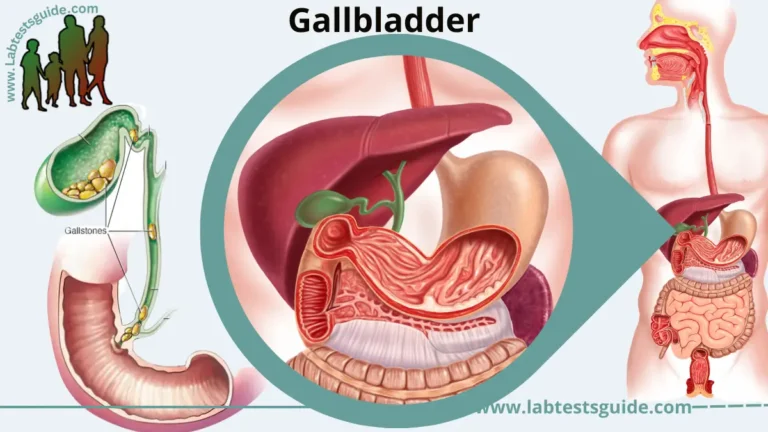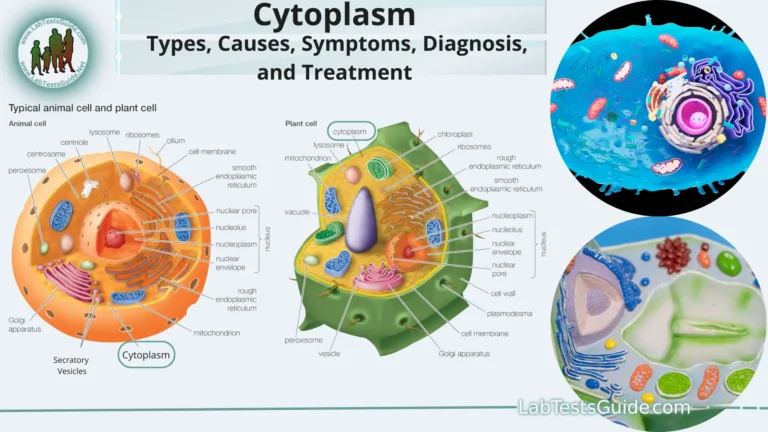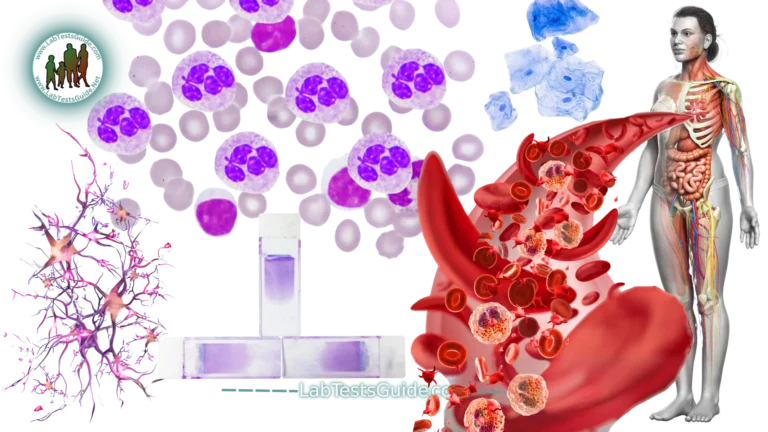The kidneys are a pair of organs located in the back of the abdomen that filter waste products from the blood and excrete them as urine. They also help regulate electrolyte balance and blood pressure, and produce hormones that regulate red blood cell production and promote bone health.
What are Kidneys:
The kidneys are a pair of bean-shaped organs located on either side of the spine, in the lower back area. They are responsible for filtering waste products and excess fluids from the blood, producing urine, regulating electrolyte balance, and maintaining blood pressure. The kidneys are also involved in the production of hormones that help regulate red blood cell production, bone health, and blood pressure. Kidney problems can cause a range of symptoms, including fatigue, swelling, and changes in urination patterns. Common kidney conditions include kidney stones, urinary tract infections, and kidney disease, which can be caused by a variety of factors including diabetes, high blood pressure, and genetics. Treatment for kidney problems may involve medications, lifestyle changes, or in severe cases, dialysis or kidney transplant.
Functions of Kidneys :
The kidneys play a vital role in maintaining the overall health of the body. Here are some of the key functions of the kidneys:
- Filter Waste Products: The kidneys filter waste products, excess fluids, and toxins from the blood, which are then eliminated from the body in the form of urine.
- Regulate Fluid Balance: The kidneys help regulate fluid balance in the body by adjusting the amount of water that is retained or excreted in the urine.
- Maintain Electrolyte Balance: The kidneys help maintain the balance of electrolytes, such as sodium, potassium, and calcium, in the body.
- Produce Hormones: The kidneys produce hormones that help regulate blood pressure, stimulate red blood cell production, and maintain bone health.
- Regulate pH Balance: The kidneys help regulate the pH balance of the body by controlling the levels of acids and bases in the blood.
- Detoxify the Body: The kidneys help remove toxins and other harmful substances from the blood, such as drugs and environmental pollutants.
Overall, the kidneys are essential for maintaining the proper functioning of the body and removing waste products that can lead to health problems if they build up in the body.
Signs and Symptoms of Kidneys :
The signs and symptoms of kidney problems can vary depending on the underlying condition. Here are some common signs and symptoms of kidney problems:
- Changes in Urination: Changes in the frequency, color, odor, or amount of urine can be a sign of kidney problems. This may include decreased urine output, blood in the urine, or frequent urination.
- Swelling: Swelling in the hands, feet, ankles, or face can be a sign of kidney problems, as the kidneys play a role in regulating fluid balance in the body.
- Fatigue: Kidney problems can cause fatigue and weakness, as the kidneys play a role in producing hormones that help regulate energy levels.
- Nausea and Vomiting: Nausea and vomiting can be a sign of kidney problems, as waste products can build up in the body and cause digestive problems.
- High Blood Pressure: The kidneys play a role in regulating blood pressure, so kidney problems can lead to high blood pressure.
- Back Pain: Kidney problems can cause pain in the lower back, sides, or abdomen, as the kidneys are located in the lower back area.
- Skin Rash: Kidney problems can cause a skin rash or itching, as waste products can build up in the body and affect the skin.
If you are experiencing any of these signs and symptoms, it is important to see a healthcare provider for evaluation and diagnosis.
Diagnoses of Kidneys :
There are several diagnostic tests that can be used to evaluate kidney function and detect kidney problems. Here are some common diagnostic tests used for kidney evaluation:
- Blood Tests: Blood tests can be used to measure levels of creatinine, a waste product that is filtered by the kidneys. Elevated creatinine levels can be a sign of kidney problems.
- Urine Tests: Urine tests can be used to measure levels of protein, glucose, and other substances that can be a sign of kidney problems.
- Imaging Tests: Imaging tests, such as ultrasound, CT scan, or MRI, can be used to visualize the kidneys and detect abnormalities.
- Biopsy: In some cases, a kidney biopsy may be recommended to evaluate kidney function and diagnose underlying conditions.
- Glomerular Filtration Rate (GFR): GFR is a test that estimates how well the kidneys are filtering waste products from the blood. A low GFR can be a sign of kidney problems.
- Kidney Function Tests: Kidney function tests, such as the blood urea nitrogen (BUN) test, can be used to evaluate kidney function and detect abnormalities.
It is important to see a healthcare provider for evaluation and diagnosis if you are experiencing symptoms of kidney problems or if you have risk factors for kidney disease, such as diabetes or high blood pressure.
Risk Factors of Kidneys :
There are several risk factors that can increase the likelihood of developing kidney problems. Here are some common risk factors for kidney disease:
- Diabetes: Diabetes is a leading cause of kidney disease, as high blood sugar levels can damage the kidneys over time.
- High Blood Pressure: High blood pressure can damage the kidneys over time, leading to kidney disease.
- Family History: Having a family history of kidney disease can increase the likelihood of developing kidney problems.
- Age: The risk of kidney problems increases with age, as the kidneys may become less efficient over time.
- Smoking: Smoking can increase the risk of kidney problems, as it can damage blood vessels and decrease blood flow to the kidneys.
- Obesity: Obesity can increase the risk of developing kidney problems, as it can lead to high blood pressure and diabetes.
- Cardiovascular Disease: Having a history of cardiovascular disease can increase the likelihood of developing kidney problems.
- Chronic Infections: Chronic infections, such as HIV or hepatitis C, can increase the risk of kidney problems.
It is important to identify and manage these risk factors in order to prevent or delay the onset of kidney disease.
Preventions of Kidneys :
There are several ways to prevent kidney problems and promote kidney health. Here are some common prevention strategies:
- Stay Hydrated: Drinking plenty of water can help flush toxins from the kidneys and promote kidney health.
- Eat a Healthy Diet: Eating a diet that is low in salt and processed foods and high in fruits, vegetables, and whole grains can promote kidney health.
- Exercise Regularly: Regular physical activity can help maintain a healthy weight, reduce blood pressure, and promote kidney health.
- Manage Blood Pressure: High blood pressure can damage the kidneys over time, so it is important to monitor and manage blood pressure levels.
- Control Blood Sugar: High blood sugar levels can damage the kidneys over time, so it is important to monitor and control blood sugar levels, particularly for those with diabetes.
- Quit Smoking: Smoking can damage blood vessels and decrease blood flow to the kidneys, so quitting smoking can promote kidney health.
- Limit Alcohol Consumption: Drinking too much alcohol can damage the kidneys over time, so it is important to limit alcohol consumption.
- Manage Chronic Conditions: Managing chronic conditions such as diabetes, high blood pressure, and cardiovascular disease can help prevent kidney problems.
- Avoid Exposure to Toxins: Avoiding exposure to toxins such as heavy metals and chemicals can help prevent kidney damage.
It is important to maintain regular check-ups with a healthcare provider in order to monitor kidney function and detect problems early.
FAQs (Frequently Asked Questions):
What do the kidneys do?
The kidneys are responsible for filtering waste and excess fluids from the blood, producing urine, regulating blood pressure, and maintaining electrolyte balance in the body.
What are the signs and symptoms of kidney problems?
Signs and symptoms of kidney problems can include fatigue, changes in urination patterns, swelling in the legs or feet, nausea, vomiting, and high blood pressure.
How are kidney problems diagnosed?
Kidney problems can be diagnosed through blood and urine tests, imaging tests such as ultrasound or CT scan, and kidney biopsy.
What are the risk factors for kidney disease?
Risk factors for kidney disease include high blood pressure, diabetes, obesity, smoking, a family history of kidney disease, and being over the age of 60.
How can I prevent kidney problems?
Prevention strategies for kidney problems include staying hydrated, eating a healthy diet, exercising regularly, managing blood pressure and blood sugar levels, quitting smoking, limiting alcohol consumption, managing chronic conditions, and avoiding exposure to toxins.
What is chronic kidney disease?
Chronic kidney disease is a condition in which the kidneys gradually lose function over time, often as a result of underlying health conditions such as diabetes or high blood pressure.
How is chronic kidney disease treated?
Treatment for chronic kidney disease may involve medications to manage underlying health conditions, lifestyle changes, dialysis, or kidney transplant.
What is a kidney stone?
A kidney stone is a small, hard deposit that forms in the kidneys and can cause pain and discomfort when passed through the urinary tract.
How are kidney stones treated?
Treatment for kidney stones may involve pain management, medications to help pass the stones, or procedures to break up or remove the stones.
What is a urinary tract infection (UTI)?
A urinary tract infection is an infection in any part of the urinary system, including the kidneys, bladder, and urethra.
What are the symptoms of a UTI?
Symptoms of a UTI can include a strong, persistent urge to urinate, a burning sensation during urination, passing frequent, small amounts of urine, cloudy or strong-smelling urine, and pelvic pain.
How are UTIs treated?
Treatment for UTIs usually involves antibiotics to kill the bacteria causing the infection.
What is acute kidney injury?
Acute kidney injury is a sudden loss of kidney function that can be caused by a number of factors, including dehydration, medication side effects, and infections.
How is acute kidney injury treated?
Treatment for acute kidney injury may involve addressing the underlying cause, managing fluids and electrolytes, and, in severe cases, dialysis.
What is polycystic kidney disease?
Polycystic kidney disease is a genetic disorder in which cysts form in the kidneys, eventually leading to kidney failure.
How is polycystic kidney disease treated?
Treatment for polycystic kidney disease may involve managing symptoms, such as high blood pressure, and eventually may involve dialysis or kidney transplant.
What is glomerulonephritis?
Glomerulonephritis is a condition in which inflammation occurs in the glomeruli, the tiny structures in the kidneys that filter blood.
How is glomerulonephritis treated?
Treatment for glomerulonephritis may involve medications to reduce inflammation, manage blood pressure, and prevent complications.
What is kidney cancer?
Kidney cancer is a type of cancer that begins in the cells of the kidneys.
How is kidney cancer treated?
Treatment for kidney cancer may involve surgery to remove the affected kidney, radiation therapy, chemotherapy, or targeted therapy.
Conclusion:
In conclusion, the kidneys and gallbladder are important organs in the body with vital functions. The kidneys are responsible for filtering waste products from the blood and maintaining the body’s fluid balance, while the gallbladder stores and releases bile to aid in the digestion of fats. Both organs can experience various diseases and conditions, which can lead to serious health complications. It is important to recognize the signs and symptoms of kidney and gallbladder problems and seek medical attention if necessary. Additionally, lifestyle modifications and preventive measures can help reduce the risk of developing kidney and gallbladder diseases.
Possible References Used





